Breast Reduction in Israel
Search and Compare the Best Clinics and Doctors at the Lowest Prices for Breast Reduction in Israel
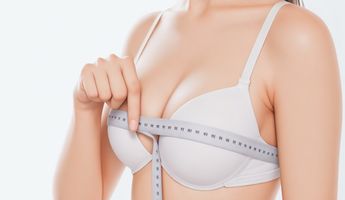
Find the best clinics for Breast Reduction in Israel
With Medijump you can browse 11 facilities offering Breast Reduction procedures in Israel. The cheapest price available is $2,793 in Tel Aviv. And for the cheapest price globally, prices start from $89 in Czech Republic.
Breast Reduction in Tel Aviv
Price: $ 2,793
Breast Reduction in Ramat Gan
Price: $ 9,559
Czech Republic offers the best prices Worldwide
Price: $ 89
From 24 verified reviews
sigalit kochmeister, 11 February 2020
Very professional, kind and attentiveLovely clinic and wonderful staffHighly recommend
From 24 verified reviews
Raymonde Amsalem, 02 February 2020
True courtesy and integrity! Uncompromising professionalism in maintaining a natural and flattering aesthetic appearance. Dr. Meir Cohen and his staff are simply outstanding! Highly recommend
From 109 verified reviews
Y N, 22 September 2020
Excellent medical center, with friendly staff and highly qualified doctors.Thank you for your work.My operation was successful
From 126 verified reviews
Y Jilani, 19 September 2020
A huge academic hospital serving the greater jerusalem area, world class health professionals and good location and amenities!
From 122 verified reviews
fadi hreaz, 27 August 2020
Hospital gives reasonable treatment but poor sorting
From 106 verified reviews
Abed Faroge, 22 September 2020
בית חולים וצוות ברמה שירותית ואיכותית מאד גבוהה . צוות מקצועי אדיב וקשוב לצרכי המטופלים . רשמת השירות וההיענות של צוות בית החולים משרה אווירת ביטחון שאכן המטופל בידיים טובות .
From 13 verified reviews
charles avital, 16 January 2020
Very beautiful and perfect
Tel Aviv Sourasky Medical Center (Ichilov Medical Center), located in Arison New Hospitalization Building, Tel Aviv, Israel offers patients Breast Reduction procedures among its total of 428 available procedures, across 29 different specialties. Currently, there's no pricing information for Breast Reduction procedures at Tel Aviv Sourasky Medical Center (Ichilov Medical Center), as all prices are available on request only, whilst the national average price is approximately ฿324,502. There are many specialists available at the Clinic, with 13 in total, and they are accredited by JCI Accredited
IIMedCare, located in Arison New Hospitalization Building, Tel Aviv, Israel offers patients Breast Reduction procedures among its total of 19 available procedures, across 3 different specialties. Currently, there's no pricing information for Breast Reduction procedures at IIMedCare, as all prices are available on request only, whilst the national average price is approximately $9,017. All procedures and treatments are undertaken by just a small team of specialists, with 3 in total at the Hospital, and they are not accredited by any recognized accreditations institutes
Assuta Medical Center, located in Arison New Hospitalization Building, Tel Aviv, Israel offers patients Breast Reduction procedures among its total of 15 available procedures, across 6 different specialties. Currently, there's no pricing information for Breast Reduction procedures at Assuta Medical Center, as all prices are available on request only, whilst the national average price is approximately $9,017. All procedures and treatments are undertaken by just a small team of specialists, with 3 in total at the Hospital, and they are not accredited by any recognized accreditations institutes
Health Tour, located in Ramat Yam St, Herzliya, Israel offers patients Breast Reduction procedures among its total of 105 available procedures, across 21 different specialties. Currently, there's no pricing information for Breast Reduction procedures at Health Tour, as all prices are available on request only, whilst the national average price is approximately $9,017. All procedures and treatments are undertaken by the lead specialist at the Hospital, and they have multiple recognized accreditations, including: Accreditation Programme of Health OrganizationISPS - The Israel Society of Plastic Surgeons
- Home
- Israel
Compare Before & After Photos of _procedure_photos.phpBreast Reduction
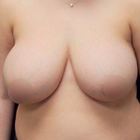
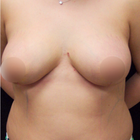
Front view

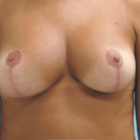
Front view

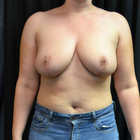
Front view
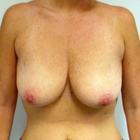

Front view


Front view


Front view
WHY US?
At Medijump, we're making medical easy. You can search, compare, discuss, and book your medical all in one place. We open the door to the best medical providers worldwide, saving you time and energy along the way, and it's all for FREE, no hidden fees, and no price markups guaranteed. So what are you waiting for?

Free

Best Price

Widest Selection

Risk-Free
What you need to know about Breast Reduction in Israel
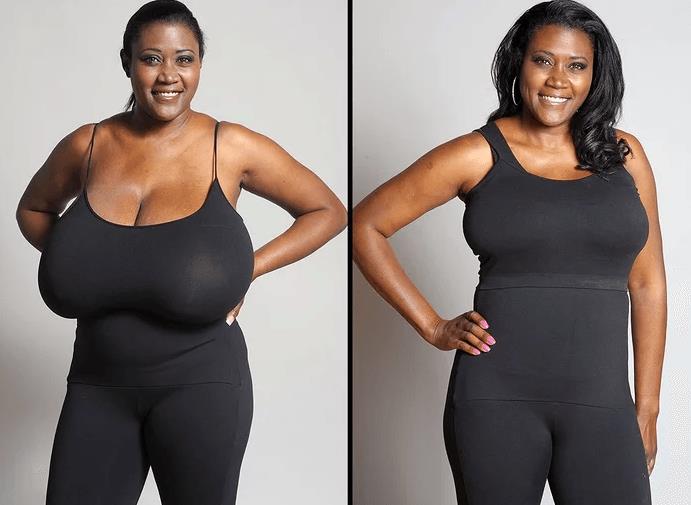
Female Breast reduction (reduction mammoplasty), also known as Reduction Mammoplasty, is a surgical operation to reduce the weight and volume of the breasts. During the procedure, fat, glandular tissue and skin are removed from the breasts, which are then reshaped, and the nipples repositioned. The nipple-areola complex (NAC) is preserved to ensure that lactational ability is not affected. The mammoplasty is performed for three reasons, aesthetic, physical and psychological.
Breast size is determined by genes, hormones, body frame, and weight. For most women, breast size is proportionate to the body, but for some, the breasts are particularly large. Large breasts can cause physical symptoms such as discomfort, backache, neck pain, and skin irritations. Oversized breasts can also cause psychological distress. Common complaints from women with large breasts include not being able to wear fashionable clothes and finding it difficult to take part in active sports. In these cases, breast reduction surgery can be an option.
What does a Breast Reduction Procedure Involve?
The procedure begins with making you lay in the supine position. Anesthesia is given to avoid pain during surgery. The area is sterilized and an incision is given around the areola and down your breasts. The flap of skin containing areola and nipple is displaced and excessive fat, breast tissue, and skin are removed to lessen the size of your mammary gland. In the next step, breasts are reshaped, areola and nipples are again placed over the reduced breasts and stitches are given.
In some cases, when a large amount of tissue and fat is removed, skin flap with areola and nipples is detached and repositioned at a higher level according to the new size. Drainage tubes are inserted into the breasts to drain away blood and fluid. Bandages are applied over the stitched incisions. You are asked to wear a surgical bra. It is tried to make both breasts look alike; however, small variations in the size of breasts and areola can be there.
What about Breast Augmentation?
Breast augmentation might also be performed on women who suffer from a condition called macromastia. It can be due to various reasons such as hypertrophy of adipose tissue in the breast, after menopause, postpartum, genetics, etc. In this condition, your breasts are sagging, and their size is bigger in proportion to your body, causing a number of problems. A woman affected by macromastia suffers from pain in the head, neck, shoulders, and back. Blood circulation and respiration are also disturbed. Men who experience gynecomastia can also opt for breast reduction surgery.
Another case where breast reduction can be an option is when breasts grow particularly large because of the use of hormone replacement therapy (HRT).
What is the cost of Breast Reduction in Israel?
It's crucial to bear in mind that Breast Reduction is a substantial procedure. Consequently, contemplating the expense of this process within Israel is critical. While the total cost might fluctuate based on individual circumstances and the intricacy of the operation, it typically includes the cost of anesthesia, hospital expenses, surgical equipment, and the surgeon's charge. Having a comprehensive understanding of the total price is critical to make an educated decision and align your financial planning accordingly.
Numerous factors could influence the expense of a Breast Reduction in Israel. This includes the skill level of the surgeon, the complexity of the procedure, the kind of anesthesia applied, and postoperative care services. Thorough research and careful financial planning should enable you to handle the costs associated with the process. Also, if needed, you could consider alternatives for financial aid or insurance cover.
How Long Should I Stay in Israel for a Breast Reduction Procedure?
Surgery can last between 2 to 5 hours and sometimes even longer depending upon the size of your breasts and amount of fat and tissue that is to be removed - an overnight stay as an inpatient is required. After your condition is monitored, you are discharged from the hospital. You have to stay for at least 14 days in Israel for follow up procedures. Regular check-ups are advised in the first few days after surgery. Oral pain killers are given to deal with pain and swelling. Stitches are removed in 2 weeks after which you are allowed to go home. In case you notice any redness, secretion, abnormal pain or inflammation, consult your doctor.
What's the Recovery Time for Breast Reduction Procedures in Israel?
It takes several months for recovery from a breast reduction surgery. You cannot go to work for 1 to 2 weeks after the surgery. There will be pain and swelling in the initial days for which you are given some medicines. Avoid intensive physical activity for at least 1 month. You are asked not to wear underwire bras for a few months. You are allowed to wear a normal bra after 4 weeks. It takes 6 to 8 weeks for the swelling and tenderness to go away. Even after complete recovery, scars do not disappear. However, they are faded and become less visible. Changes continue to take place for a year after going through this surgery.
What sort of Aftercare is Required for Breast Reduction Procedures in Israel?
You should consider the following points to take care of yourself after surgery:
- Do come for regular check-ups.
- Take your medicines regularly, as and when prescribed by your physician.
- Make sure that someone lives with you to look after you.
- Follow a healthy diet plan for a better recovery.
- Do not wear fancy, underwire bras in the early days. Wear surgical bra only.
- Wear loose clothes, tees, and shirts.
- Avoid excessive, unnecessary movement of your breasts.
- Do not take a bath in the first few days, a wet bandage can be the cause of infection.
- Do not ignore any kind of soreness, redness or abnormal secretions from your breasts. Visit your doctor immediately.
- Drink plenty of water. It is very effective for a quick recovery.
- Use icepacks to help you with swelling.
- Do not try to lift heavy objects because your movement is restricted due to stitches. It can open up your stitches before time.
- Do some stretching exercises when told by your physician.
What's the Success Rate of Breast Reduction Procedures in Israel?
Breast reduction mammoplasty is found to be successful in most of the cases. According to a survey, 80% of women are satisfied with the results of the surgery. This effectively reduces neck pain, back pain, headache, and shoulder pain, with your breasts no longer sagging and causing these problems. Respiratory and circulatory problems are also resolved. In case this surgery is not successful, it leaves prominent scars which can be subjected to hypertrophy. There might be less than the required amount of tissue and fat removal. Sometimes, more breast tissue is removed leaving your chest flat. A secondary breast reduction surgery is performed to cope with this.
For an in-depth and personal review of the pros and cons of Breast Reduction, including before and after shots, watch this video blog.
Are there Alternatives to Breast Reduction Procedures in Israel?
Following are some alternatives to reduce your breast size without going through a surgery:
- Weight Loss: losing weight can also be effective in the case of reducing breast size. Some exercises are there to help you decrease your size. Exercise removes excess adipose tissue making your breasts smaller.
- Liposuction: it is a less invasive method in which a small incision is given to insert a cannula and fat is sucked from it reducing breast size. There are least scarring and recovery is faster.
- Fitting bra: it is not a permanent method to reduce your breast size but a specialized fitting bra can be helpful in making your breasts look smaller. It is not a standard bra.
What Should You Expect Before and After the Procedure
Knowing what to expect before and during a Breast Reduction helps you prepare physically, intellectually, and emotionally for the experience. A comprehensive health examination is scheduled before the procedure. Along with preparing for the procedure by following the pre-surgery instructions supplied by your healthcare institution, this is also your chance to discuss your hopes and concerns with the surgeon. Your food routine, medication regimen, and lifestyle practises might need to change as a result of this preparation.
After the surgery, it's common to feel some soreness, inflammation, and sometimes even bruising. All of these symptoms can be treated with the right medication. It's important to unwind, refrain from strenuous activity for a few weeks, wear a bra with a specific purpose, and follow a specific wound care regimen.
What are Potential Risks of Breast Reduction?
The Breast Reduction, similar to any other surgical procedure, poses possible risks and complications such as infection, bleeding, altered sensation in the nipple or breast due to anesthesia, and difficulties in breastfeeding post-operation. It is imperative to have a detailed discussion about these potential issues with your healthcare professional at the consultation phase.
It's important to know that the probability of these risks occurring is minimal and can be reduced further by opting for a well-respected clinic and surgeon, following the pre-surgical instructions, and adhering to the aftercare routine provided.
Whilst the information presented here has been accurately sourced and verified by a medical professional for its accuracy, it is still advised to consult with your doctor before pursuing a medical treatment at one of the listed medical providers
No Time?
Tell us what you're looking for and we'll reachout to the top clinics all at once
Enquire Now

Popular Procedures in Israel
Prices Start From $85

Prices Start From $120

Prices Start From $692

Prices Start From $236

Recommended Medical Centers in Israel for Breast Reduction

- Interpreter services
- Translation service
- Religious facilities
- Medical records transfer
- Medical travel insurance
- Health insurance coordination
- TV in the room
- Safe in the room
- Phone in the room
- Private rooms for patients available

- Interpreter services
- Translation service
- Religious facilities
- Medical records transfer
- Medical travel insurance
- Health insurance coordination
- TV in the room
- Safe in the room
- Phone in the room
- Private rooms for patients available

- Interpreter services
- Translation service
- Religious facilities
- Medical records transfer
- Medical travel insurance
- Health insurance coordination
- TV in the room
- Safe in the room
- Phone in the room
- Private rooms for patients available

- Interpreter services
- Translation service
- Religious facilities
- Medical records transfer
- Medical travel insurance
- Health insurance coordination
- TV in the room
- Safe in the room
- Phone in the room
- Private rooms for patients available

- Interpreter services
- Translation service
- Religious facilities
- Medical records transfer
- Medical travel insurance
- Health insurance coordination
- TV in the room
- Safe in the room
- Phone in the room
- Private rooms for patients available

- Interpreter services
- Translation service
- Religious facilities
- Medical records transfer
- Medical travel insurance
- Health insurance coordination
- TV in the room
- Safe in the room
- Phone in the room
- Private rooms for patients available

- Interpreter services
- Translation service
- Religious facilities
- Medical records transfer
- Medical travel insurance
- Health insurance coordination
- TV in the room
- Safe in the room
- Phone in the room
- Private rooms for patients available

- Interpreter services
- Translation service
- Religious facilities
- Medical records transfer
- Medical travel insurance
- Health insurance coordination
- TV in the room
- Safe in the room
- Phone in the room
- Private rooms for patients available

- Interpreter services
- Translation service
- Religious facilities
- Medical records transfer
- Medical travel insurance
- Health insurance coordination
- TV in the room
- Safe in the room
- Phone in the room
- Private rooms for patients available

- Interpreter services
- Translation service
- Religious facilities
- Medical records transfer
- Medical travel insurance
- Health insurance coordination
- TV in the room
- Safe in the room
- Phone in the room
- Private rooms for patients available
Breast Reduction in and around Israel
About Israel
Israel celebrated 70 years of independence in 2018 - in what is a truly ancient land. The world’s only Jewish and democratic state is home to sites sacred to Judaism, Christianity, and Islam. While these holy places are truly unique attractions, there is more to Israel than religious heritage and complex politics. Jerusalem is the official capital and holy city to three world religions, previously mentioned, while Tel Aviv brims with beaches and bustles with urban vitality. Then there’s the Dead Sea and Masada, the stark, stunning Negev, and fertile Galilee. The number of museums and cultural institutions per relative area is larger in Israel than anywhere in the world.
Home to more than 30 JCI accredited facilities, medical tourists visit Israel for a variety of procedures, but particularly dental and tertiary care. Breast Reduction procedures are also a popular choice.
Popular Parts of Israel
Israel is an alluring destination for those who want to appreciate its astonishing religious sites, stunning natural beauty, and remarkable historic relics.
- Tel Aviv is the economic and technological center of Israel, with a population of over 400,000; it is the most populous city in the country. Located on the Mediterranean coastline, the city offers sunny beaches for any sun-chaser. The city has impressive architecture and has a modern cosmopolitan landscape. Tel Aviv Museum of Art houses works by international artists. In addition, it has a nonstop nightlife with a huge party option to fit every taste.
- Haifa is the country’s third-largest city and it is one of Israel’s high-technology centers as well as a busy working port. The city may have an industrious image, but with a number of museums, gardens, and shrines, it is an amazing place to travel to. The Baha’i Gardens are possibly the most popular attraction as it is the final resting place of the prophet-herald of the Baha’i Faith. Tourists can have a bird’s eye view from the platform at the top or take a free Panorama Tour.
- Eilat is located at the southernmost tip of Israel and is the only Israeli city on the Red Sea. Families come to the city to have a good time on the beach and party-goers come for its all-night parties. The turquoise waters invite visitors to snorkel, scuba dive, or swim. It is recommended to stay in an Oasis at night to get a chance to stargaze under a clear desert night sky. During the day, visit the Eilat Mountains to have a beautiful view of an ancient desert.
- Tsfat or Safed is a quaint mountain-top city surrounded by pine forests. Located at an elevation of 900 meters, the city enjoys warm summers and cold winters. It is a popular summer holiday resort frequented by Israelis and foreign visitors. Here, tourists will find synagogues, art galleries, and unique crumbling stone houses.
- Jerusalem is one of the oldest cities in the world and three major Abrahamic religions (Judaism, Islam, and Christianity) considered it a holy city. Even though it has been destroyed and rebuilt over thousands of years, the city manages to endure its spiritual magnetism. It is overflowing with holy sites, diversity, and layers of history.
Weather and Climate in Israel
Israel is a year-round destination but the temperatures in the city vary widely. The coastal areas such as Tel Aviv and Haifa experiences a typical Mediterranean climate where the winters are rainy and the summers are hot. The area around Northern Negev has a semi-arid climate with hot summers and cool winters. The Southern Negev has a desert climate with extremely hot summers and mild winters. On the other hand, mountainous regions have pleasant summer and cold winters with a little snowfall.
Generally, the winter months from November to March are the coldest months in the country. When mountainous areas such as Jerusalem receives snowfall, the coastal areas experience heavy rainfall. Summer starts in June and ends in August and it is the hottest season in every part of the country, especially in the desert area where the heat can be overbearing. The seasons of spring and autumn have the best weather, with pleasant temperatures and fewer rainy days.
Getting Around in Israel
Ben Gurion Airport is the main gateway to Israel and it is the busiest airport in the country located 20 kilometers southeast of Tel Aviv and 45 kilometers northwest of Jerusalem. The airport is ranked among the five best airports in the Middle East. It serves both domestic and international flights to and from numerous major cities around the world. There is two main passenger terminal at this airport. Terminal 1 serves domestic flights and international budget airlines such as EasyJet and Vueling, while Terminal 3 serves international flights.
Since the distance between one city to another is relatively short, getting around Israel is easy. The quickest and most convenient way is by domestic flights. The tickets are not very expensive and deals are often available online. Sometimes a one-way ticket can cost as little as 89 NIS (25 USD). Buses are also convenient but can be slow during traffic jams. Buses connecting Jerusalem, Tel Aviv, and Haifa depart very frequently. A one-way ticket from Tel Aviv to Jerusalem is around 25 NIS (7 USD). Israel’s main bus company is the Egged Bus Company. Trains are also available and very comfortable. They are a lot faster than the bus but the cost can be higher.
Taxis are widely available and can be hailed directly from the streets. Although most taxis are metered, you can agree on a fixed rate and be aware that some drivers are known to overcharge tourists, so you should insist on using the meter and make sure that it is reset to the base fare after you get in. The base fare is normally around 12.30 NIS (3.5 USD). There is also a shared taxi van known as Sherut. It is a good option to travel between Tel Aviv and Jerusalem or Tel Aviv and Haifa.
Tourist Visas in Israel
All visitors must hold a passport valid for at least six months after the date of departure from Israel. Citizens of 99 countries including the European Union, Canada, Singapore, Russia, and the United States do not require a visa to enter the country for up to 3 months. Nationals not listed on the visa exemption agreement need to obtain a visa and should contact their nearest embassy of Israel. Citizens of 25 countries require a confirmation from the Israeli government before a tourist visa is issued.
Additional Information
- Local Currency: The currency is the New Israeli Shekel (NIS) and 1 USD will get you 3.28 NIS.
- Money & Payments: ATMs that accept international cards are widespread (mostly Visa and MasterCard), except at border crossings with Egypt and Jordan. Credit cards are widely accepted and tipping is common but normally not expected.
- Local Language: The official language is Hebrew and Arabic has a special status under Israeli law as a semi-official language. Russian is spoken by around 20% of the population. Most of the population can speak English fairly well as it is required in schools and universities.
- Local Culture and Religion: More than 70% of the population follows Judaism. There are small groups of Muslims, Christian, and Druze. Muslims are the largest minority group in the country.
- Public Holidays: The country celebrates major national holidays as well as Jewish holidays such as Independence Day, Jerusalem Day, and Hanukkah.
Popular Searches
- Plastic Surgery in Thailand
- Dental Implants in Thailand
- Hair Transplant in Thailand
- Breast Augmentation Thailand
- Gastric Sleeve in Thailand
- Gender Reassignment Surgery in Thailand
- Laser Hair Removal in Bangkok
- Botox in Bangkok
- Dermatology in Bangkok
- Breast Augmentation in Bangkok
- Coolsculpting in Bangkok
- Veneers in Turkey
- Hair Transplant in Turkey
- Rhinoplasty in Turkey
- Stem Cell Therapy in Mexico
- Rhinoplasty in Mexico
- Liposuction in Mexico
- Coolsculpting in Tijuana
- Rhinoplasty in Korea
- Scar Removal in Korea
- Gastric Sleeve in Turkey
- Bone Marrow Transplant in India
- Invisalign in Malaysia
- Plastic Surgery in the Dominican Republic
- Tummy Tuck in the Dominican Republic
- Plastic and Cosmetic Surgery in Poland
- Rhinoplasty in Poland
- Hair Implant in Poland
- Dental Implants in Poland
- IVF in Turkey









